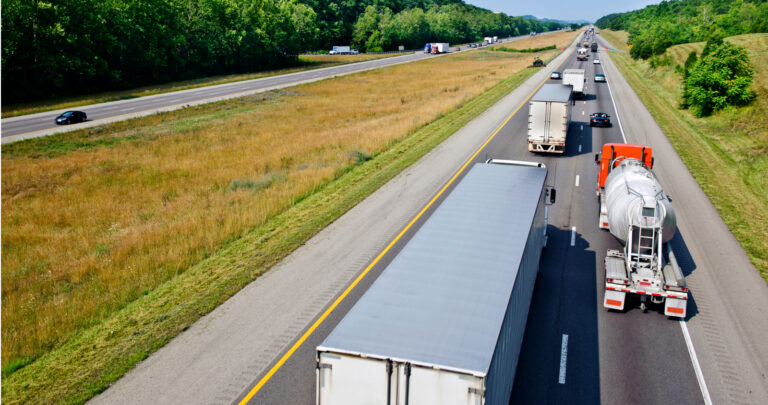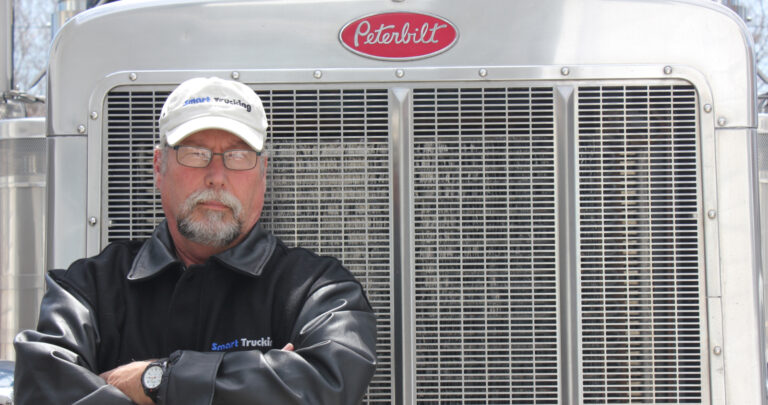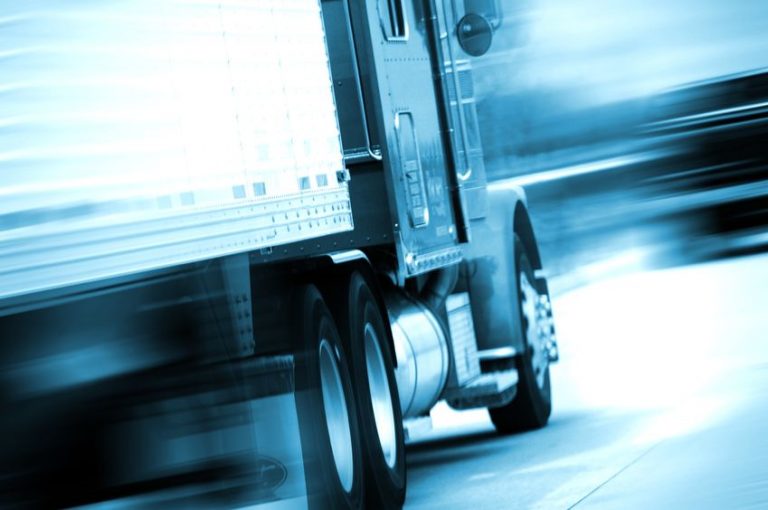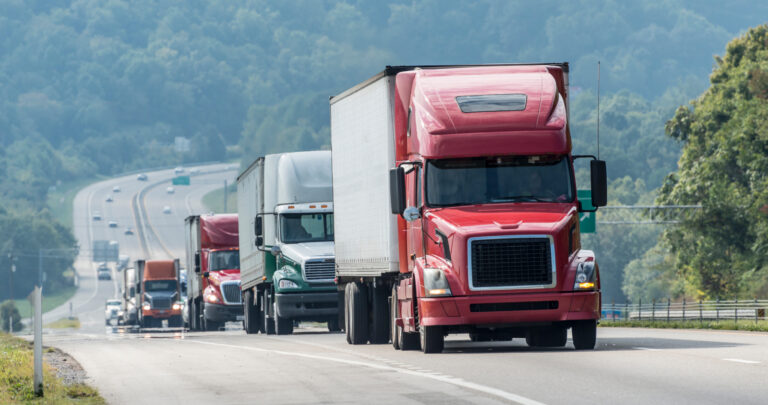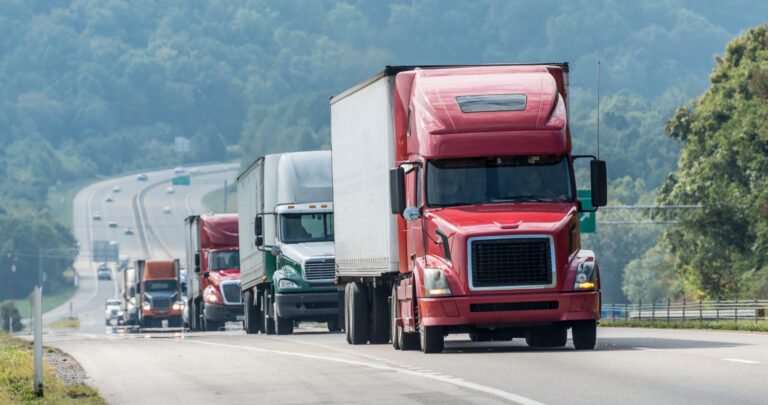The Best Tanker Trucking Companies to Work, U.S., 2025
Top Tanker Trucking Companies in the US To Work For
Tanker work typically falls to the ‘better carriers’.
Tanker carriers demand specialized training and certification, such as the Hazardous Materials (HazMat) endorsement, which acknowledges a driver’s ability to handle dangerous goods responsibly.
The best tanker trucking companies typically have:
- a good solid reputation within the trucking industry
- provide substantial training
- modern equipment
- experienced drivers
- high standards of operation
- and rigorous safety standards.
Selecting the best tanker trucking company is crucial if you aim to join a leading fleet specialized in transporting liquids, including hazardous materials.
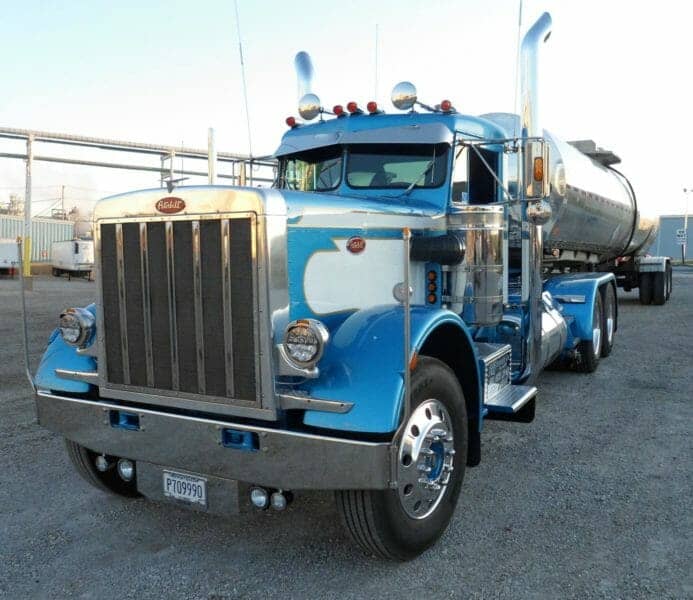
Tanker Trucking Companies (To Check Out)
Clean Harbors
Clean Harbors stands out for its commitment to environmental sustainability while managing a robust fleet that services the entire U.S. Their stringent safety protocols and continuous driver education programs ensure that their drivers possess the knowledge and skills necessary for the demands of tanker work.
Dupre Logistics
Dupre Logistics, has a robust and thorough orientation and training sessions. This company is best noted by it’s significant presence within the continental U.S., offering a variety of hauls to fit different driver preferences.
Indian River Transport
With a focus on liquid bulk transport, Indian River Transport excels in offering drivers a stable and safety-conscious workplace. Their modern equipment and nationwide reach provide you with opportunities to work throughout the U.S.
Liquid Transport
As a driver at Liquid Transport, you become part of a specialized tanker fleet known for its state-of-the-art trucks and safety record. Their footprint across major regions of the U.S. ensures that you have access to a diverse range of routes and schedules.
Schneider National
Schneider National boasts a top place in the tanker trucking sector, where drivers can benefit from their well-established infrastructure established reputation in the trucking industry. They prioritize a safety-first culture and provide comprehensive training to ensure drivers are prepared to handle the challenges of tanker work.
Quality Carriers
Joining Quality Carriers means getting involved with one of the largest tanker freight networks in the U.S. Drivers typically find the driver training thorough. They have a modern, well-maintained fleet which truly adds to their professionalism.
James J. Williams Bulk
James J. Williams, a liquid and dry bulk carrier in the Northwest, Oregon and Washington State. They run current model equipment, above average pay and treat their drivers respectfully.
California Overland
Based out of Minnesota, California Overland hires both company drivers and owner operators. 2 years minimum experience required. This company boasts a solid safety record, which is critically important. Small company. Check out California Overland Company driver openings.
Groendyke Transport
Groendyke is certainly one of the top companies in the tanker trucking niche. They are dedicated to exceptional training and high safety standards for their driver fleet. One of the oldest tanker outfits in the U.S., with a solid reputation.
Hoffman Trucking
Hoffman Trucking specializes in both dry and liquid bulk tanker work. rovides you with a supportive work atmosphere tailored to those specializing in tanker trucking. A small award winning safety fleet.
Farmers Oil Company
Farmers Oil Company is first of all noted for their gorgeous long hood fleet trucks. A small outfit with about 100 trucks, but a sharp, highly regarded operation in the tanker niche.
If tanker work isn’t for you, flatbed trucking companies may be appealing as this type of trucking also pays better than the average truck driving job.
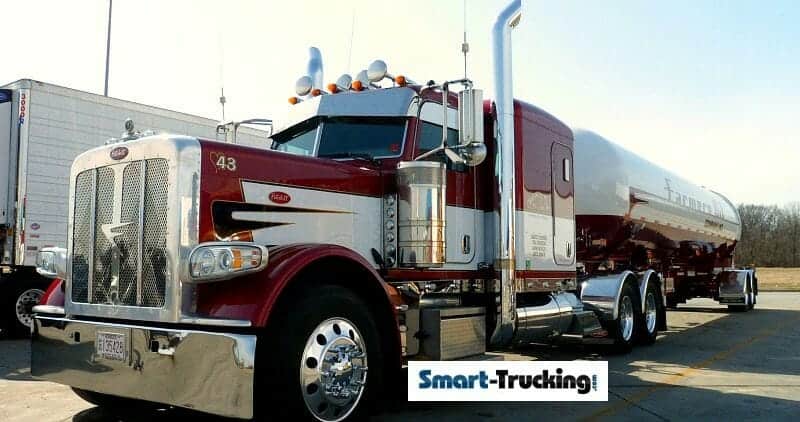 Related> Tanker Truck Driving Jobs: A Comprehensive Guide to a Profitable Niche
Related> Tanker Truck Driving Jobs: A Comprehensive Guide to a Profitable Niche
Types of Tanker Trailers
When you’re exploring tanker trucking companies, it’s essential to understand the different types of tanker trailers available to you. Each type is designed for specific materials and needs.
- Chemical Tankers: These are built for transporting hazardous and non-hazardous chemicals. They often have a strong build and are equipped with specialized linings to prevent corrosion. Knowledge about chemical tanker trailers will help you select the right type for chemical transport needs.
- Petroleum Tankers: Created for transporting various petroleum products like gasoline, diesel, and crude oil. Their design focuses on safety and spill prevention. Understanding the different types of petroleum tankers can be crucial for your fuel delivery requirements.
- Food Grade Tankers: These tankers are designed to transport liquid food items such as milk, vegetable oils, and syrups. They must meet strict sanitation standards to prevent contamination. Learn more about liquid food and beverage tankers.
- Dry Bulk Tankers: Also known as pneumatic tankers, they are for dry goods like grain, sugar, and flour. Using compressed air, they smoothly unload the dry material.
- Agricultural Tankers: Used primarily for transporting liquid fertilizers and other agricultural chemicals. They’re built to support the agriculture industry’s specific demands.
If tanker work appeals to you, you may find Department of Defense Truck Driver Jobs to your liking.
Each tanker type has specialized features tailored to the material it’s designed to transport, ensuring safety, efficiency, and compliance with regulations.
Your choice will depend on the freight you plan to haul.
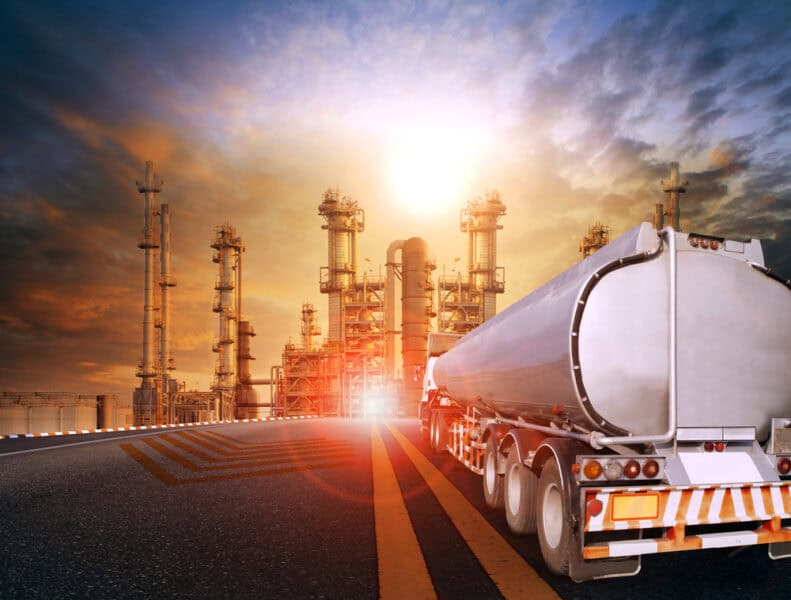
Commodities Hauled in Tankers
When you’re dealing with tanker trucking companies, you encounter a diverse range of commodities transported across the nation. These materials can be broadly categorized into:
Liquid Goods:
- Edible Liquids: such as milk, vegetable oils, and fruit juices.
- Chemicals: Many tankers are designated for chemicals which can be hazardous or non-hazardous like cleaning solutions and industrial chemicals.
- Petroleum Products: fuels like gasoline, diesel, and aviation fuel are commonly hauled by tanker trucks.
- Water: often for agricultural or industrial use.
Dry Bulk:
- Food-grade products: such as flour, sugar, and salt.
- Construction Materials: including cement, sand, and gravel.
- Plastics: in the form of pellets or powders for manufacturing processes.
- Industrial Minerals: such as lime or gypsum, which are vital in various production industries.
Each commodity requires a specific type of tanker, designed to safely transport the load.
For instance, edible liquids need a sanitary tanker to prevent contamination, while hazardous materials need tankers built with materials and safety features that comply with regulatory standards.
Related > How to Drop a Loaded Tanker Trailer
